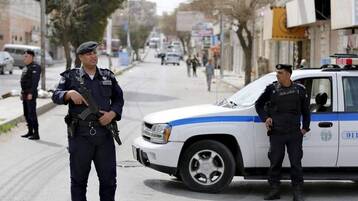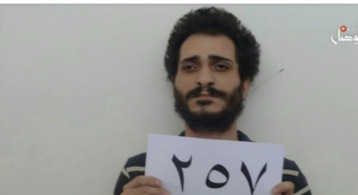-
Indonesia’s vaccination drive lags behind as COVID-19 cases surge
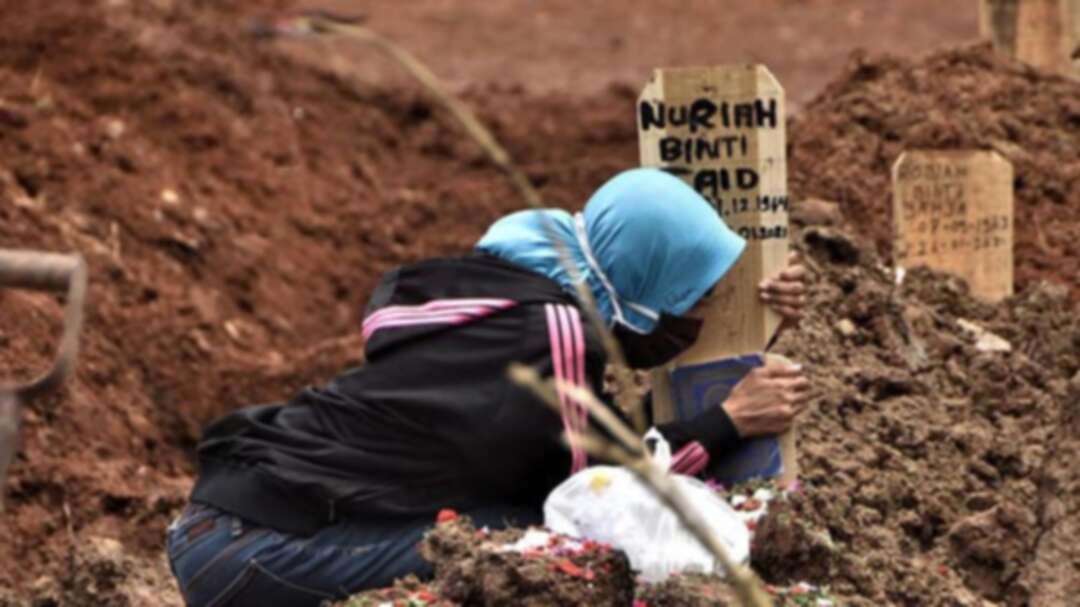
Indonesian President Joko Widodo received the nation’s first coronavirus vaccine live on television last month, but despite the fanfare, his ambitious inoculation campaign is already facing glitches from refrigeration, distrust and disinformation.
Meanwhile, infections and deaths are rising faster than ever. Even if the vaccination program goes smoothly, it will be months before the general population starts to be inoculated, health experts say.
“Disaster,” said Pandu Riono, a University of Indonesia epidemiologist when asked what he expects of the coming months.
“Healthcare will have already collapsed. Already there are many stories about people dying on arrival, in emergency and on the way because they are searching for a hospital. Even the graveyards are running out of space.”
Budi Gunadi Sadikin, the new health minister, told health ministry officials of his concerns about the vaccination rollout soon after his appointment in late December, a source familiar with the program said.
 Health workers conduct a mass vaccination for the Covid-19 coronavirus at Istora Senayan stadium in Jakarta on February 4, 2021. (AP)
Health workers conduct a mass vaccination for the Covid-19 coronavirus at Istora Senayan stadium in Jakarta on February 4, 2021. (AP)The health ministry declined to comment on the report.
Asked about claims the pandemic is spreading faster than vaccines can be administered, COVID-19 task force spokesman Wiku Adisasmito said the government was doing its best with available resources, and rather than focus on “negative predictions” it was working hard to implement “comprehensive health protocols, vaccines and clinical care at the same time”.
In its first phase, Indonesia plans to vaccinate around 1.5 million healthcare workers by February 21, a goal the health ministry says is on track.
Jokowi, as the president is known, has said he hopes 181 million people will be vaccinated in the next 12 months, or about 1 million per day for a two-dose vaccine.
Indonesia is currently vaccinating about 50,000 people per day, according to the health ministry.
The logistics and cold chain requirements in the sprawling archipelago of 270 million people, strung across more than 17,000 tropical islands, uniquely complicate the rollout.
Blackouts and ice cream fridges
From the capital Jakarta, vaccines will be sent out to more than 10,000 health centres across the country, some in remote areas with limited resources, meaning even keeping the vaccines cool will prove a challenge.
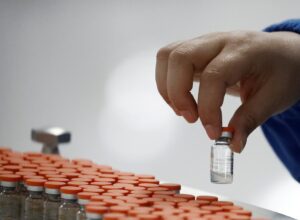 A worker performs a quality check in the packaging facility of Chinese vaccine maker Sinovac Biotech, developing an experimental coronavirus disease (COVID-19) vaccine. (Reuters)
A worker performs a quality check in the packaging facility of Chinese vaccine maker Sinovac Biotech, developing an experimental coronavirus disease (COVID-19) vaccine. (Reuters)“Just imagine you have a fridge full of vaccines and the power goes out,” said Ines Atmosukarto, a molecular biologist who works on vaccine development. “All those doses will have to go in the bin.”
In places such as Bengkulu, on Sumatra island, some health centers do not have any cold storage or stable electricity, said Herwan Antoni, head of the local health agency.
Senior health ministry official Siti Nadia Tarmizi denied shortfalls in the country’s cold chain, saying it met WHO requirements after securing medical fridges, some of which were solar powered.
The ministry, she added, has also enlisted Unilever Indonesia, which is providing more than 200 ice cream refrigerators for vaccines.
The first phase was always going to be the easiest, say health experts, given there is good data of healthcare workers and most are willing recipients.
But there are early signs that mistrust could be a stumbling bloc.
In Gowa, in South Sulawesi province, up to 200 medical workers delayed their shots, some believing it had dangerous side effects or was haram - forbidden for Muslims, or becausethey had co-morbidities, said Gaffar, a senior official there who uses one name.
In Papua, some medical workers rejected vaccines in fear of a “global antichrist conspiracy”, said Ni Nyoman Sri Antari, the head of the health office in the provincial capital Jayapura.
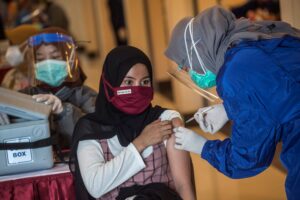 A health worker administers a vaccine for the COVID-19 coronavirus in Surabaya on January 31, 2021. (AFP)
A health worker administers a vaccine for the COVID-19 coronavirus in Surabaya on January 31, 2021. (AFP)The health ministry said these figures were inaccurate and most healthcare workers had re-registered.
But a December 2019 survey by Indonesian pollster Saiful Mujani Research and Consulting showed only 37 percent of 1,202 respondents were willing to be vaccinated, 40 percent undecided and 17 percent would refuse.
Old-fashioned measures
Public health experts say the glitches are even more reason to double down on the basics of testing, tracing and isolating.
“They need to go back to good old-fashioned public health measures,” said Ines, the molecular biologist. “It is not as sexy...we like to think there is a magic solution in the form of a pill or a jab.”
Even as the inoculations begin, the pandemic is worsening.
Cases have surpassed one million with the rate of people tested found to be COVID-19 positive hitting 35 percent recently - one of the world’s highest and an indicator that infections are much more widespread.
Epidemiologists say there may be over 3 million, with a death toll well above the 31,000 recorded.
Indonesia has secured nearly 330 million vaccine doses from China’s Sinovac, AstraZeneca and Novavax, but currently has only around 3 million ready to use doses of Sinovac’s CoronaVac.
Dicky Budiman, a pandemic researcher at Australia’s Griffith University, said it would take two, possibly three years, to complete the program, rather than the ambitious January 2022 target.
“Vaccines cannot lead this effort,” he said, “The speed of the vaccine cannot match the speed of the virus transmission.”
source: Reuters
Image source: AFP
Levant
You May Also Like
Popular Posts
Caricature
BENEFIT Sponsors Gulf Uni...
- April 17, 2025
BENEFIT, the Kingdom’s innovator and leading company in Fintech and electronic financial transactions service, has announced its sponsorship of the “Innovation and Sustainable Technology Solutions Competition (GU - IST Solutions), hosted by Gulf University at its main campus.
This strategic sponsorship reflects BENEFIT’s active role in advancing technological innovation and fostering sustainable solutions to future challenges. It also seeks to empower Bahraini youth by enhancing their skills, capabilities, and competitiveness in innovation and solution development—contributing meaningfully to the broader goals of sustainable development across all sectors.
As part of BENEFIT’s active involvement in the competition, the company has announced that Hanan Abdulla Hasan, Senior Manager of Public Relations and Communication, will serve on the competition’s supervisory committee. Her upcoming participation reflects BENEFIT’s forward-looking commitment to championing academic and professional excellence.
Commenting on the occasion, Hanan Abdulla Hasan, Senior Manager of Public Relations and Communication at BENEFIT, said, “We are privileged to support this pioneering initiative, which aligns seamlessly with BENEFIT’s enduring commitment to fostering innovation and nurturing the potential of Bahrain’s youth. Our participation is rooted in a deep sense of social responsibility and a firm belief in the pivotal role of innovation in shaping a sustainable future. Through such platforms, we seek to empower the next generation with the knowledge, skills, and foresight required to develop impactful solutions that address future challenges, in line with the United Nations Sustainable Development Goals 2030.”
Dr. Aseel Al Ayash Dean of the College of Engineering in Gulf University commented, “We extend our sincere gratitude to BENEFIT for their generous sponsorship and support of the Innovation and Sustainable Technology Solutions Competition. This contribution plays an instrumental role in helping us achieve the strategic goals of this initiative, namely, cultivating a culture of innovation and sustainability, encouraging efforts that address the imperatives of sustainable development, and enhancing the practical and professional capabilities of our students and participants.”
The event will bring together a diverse spectrum of participants, including secondary school students, university undergraduates, engineers, industry professionals, entrepreneurs, academic researchers, and subject matter experts representing a wide range of disciplines.
The competition seeks to inspire participants to develop and present innovative, sustainable technologies aimed at addressing pressing environmental, social, and economic challenges. It encourages the formulation of business models that integrate advanced technological solutions with core principles of sustainability. Moreover, it serves as a platform for emerging leaders, entrepreneurs, and innovators to contribute to the advancement of the Sustainable Development Goals, promote the ethos of responsible technology, and demonstrate its transformative potential across various sectors.
Attendees will have the opportunity to view a series of project presentations submitted by participants, covering diverse areas such as eco-friendly product design, smart and sustainable innovations, renewable energy technologies, water conservation and management, waste minimisation and recycling, green architectural solutions, and sustainable transportation systems. Outstanding projects will be formally recognised and awarded at the conclusion of the event.
opinion
Report
ads
Newsletter
Subscribe to our mailing list to get the new updates!



